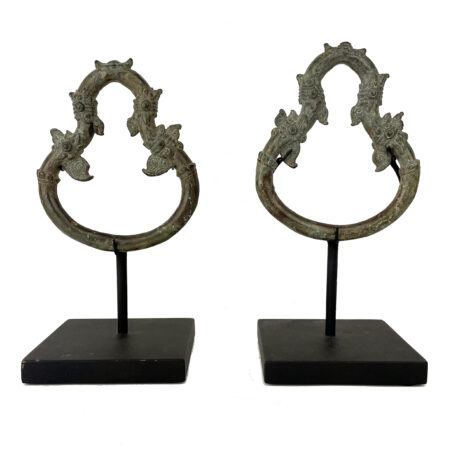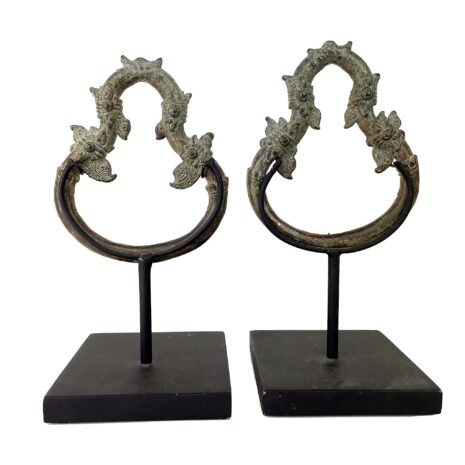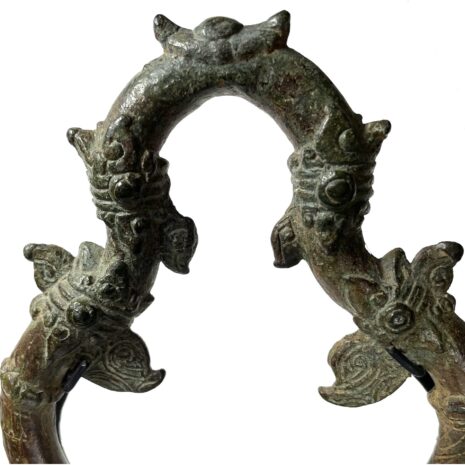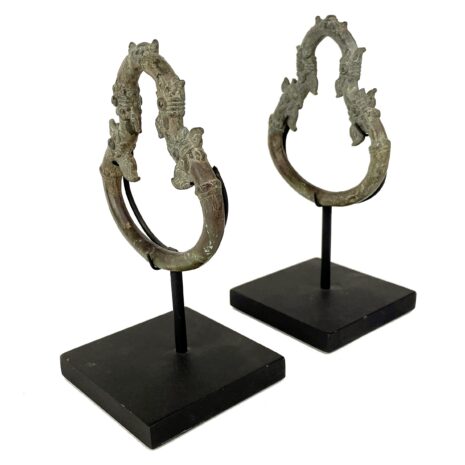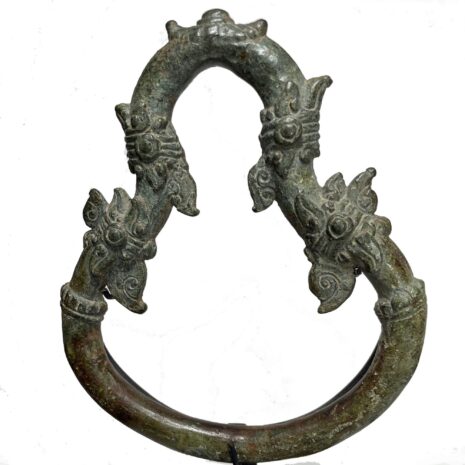Antique Pair Bronze Khmer Palanquin Rings, Thailand (3378)
Original price was: $1,350.00.$785.00Current price is: $785.00.
Each H:4.675 ” W:3.875 ” D:.5 ” | FREE SHIPPING WITHIN CONTINENTAL U.S.
Pair of bronze palanquin rings to transport Khmer Empire royalty and elite decorated with a lotus motif found in Lopburi, Thailand, the western most Khmer outpost.
Description
A palanquin is a wicker or light wood human-powered mode of transport once used in Asia to carry people, usually for a royal or single person of elite status in Khmer-Empire society. Derived from the Sanskrit word for bed or couch, it is often a covered vehicle without wheels called a litter carried on the shoulders of two or four carriers using strong wood poles. Small palanquins may have had a bed or chairs and may have been enclosed for protection, while large ones had curtains or shutters, bedding and decoration reflecting the status of the person transported.
These 12-13th century antique mould cast bronze rings have a narrow upper body into which a decorative bronze hook was placed, and the wider lower body was made to accommodate the pole. By this date, poles were made with iron rather than wood and were thinner. The lotus is a sacred Asian symbol of purity. As it grows from mud and murky waters and blooms into a beautiful flower, Buddhists compare it to the awakening of the Buddha and the process of enlightenment producing harmony of mind, body and spirit. Although possibly made in Cambodia the Khmer Empire’s center, it was found in the area of Lopburi, Thailand, the western most Khmer outpost where other bronzes were probably made. Both palanquin rings are in excellent condition with fine patina and expected minor losses and evidence of long use especially on the lower wide ring.
Additional information
| Dimensions (inches) | Each: Ht: 4.675” W: 3.875” D: 0.5” |
|---|

